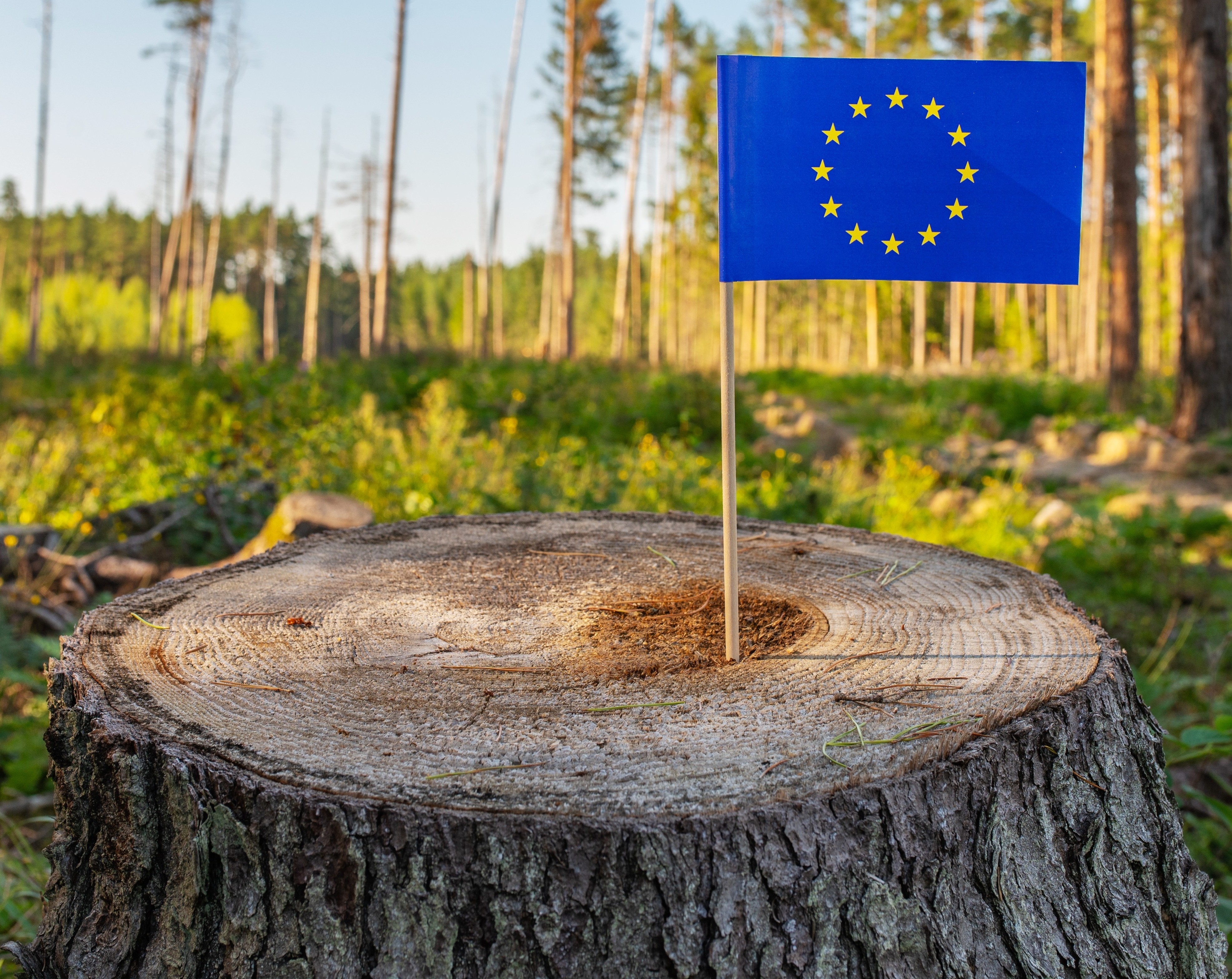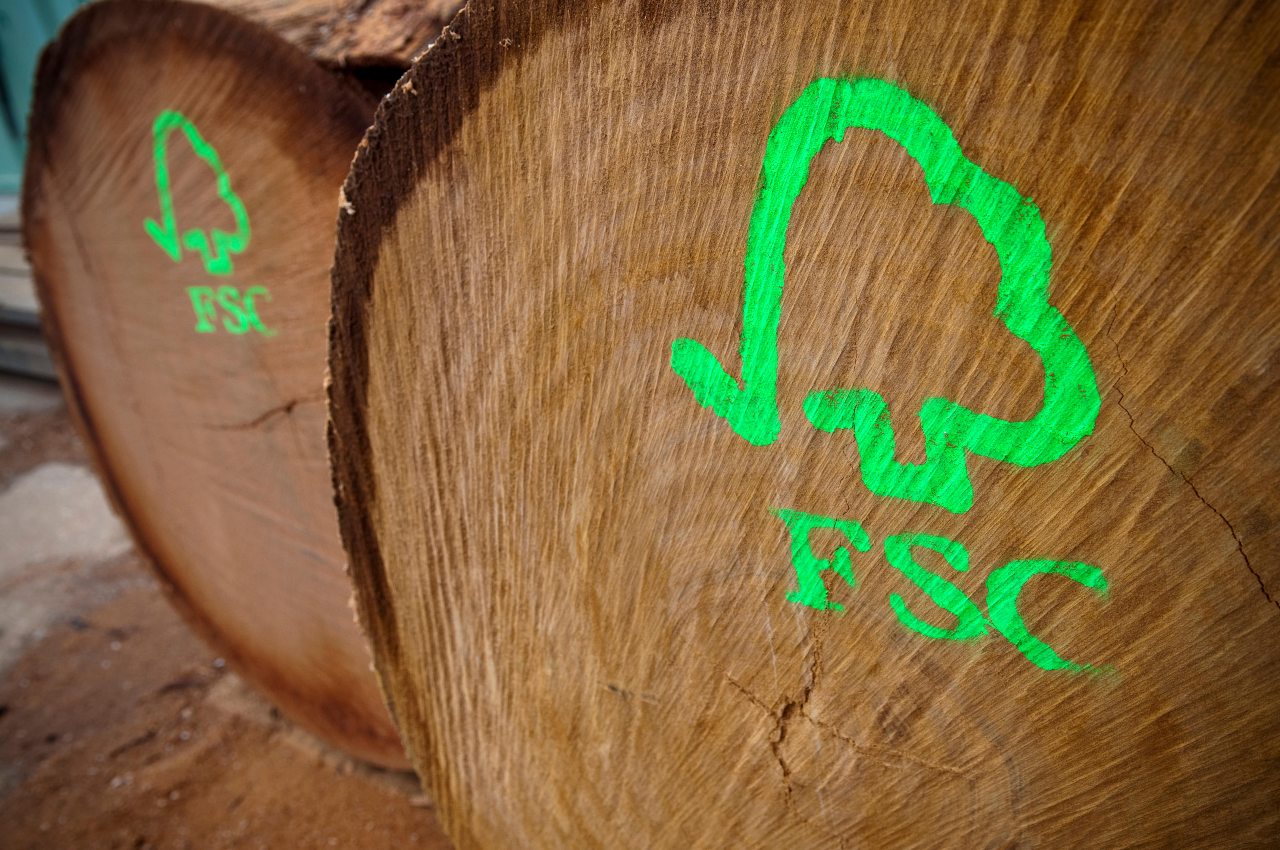
UK products containing meat sourced from JBS. M&S told the Guardian it ceased purchases from the firm in 2016. Princes and Sainsbury's said their business is conducted in line with global and ethical standards
A recent case study suggests the EU is failing in its promises to tackle its role in driving tropical forest destruction. British supermarket chains were found to be stocking corned beef from a firm fined millions of dollars for purchasing cattle reared on illegally deforested land in Brazil.
Meanwhile, European imports of beef from the Latin American country are rising in lockstep with the deforestation rate.
Meatpacking firm JBS, one of the UK’s biggest suppliers of Brazilian beef, was fined more than $7 million earlier this year for buying nearly 50,000 cows from ranches that had been ‘embargoed’ by the Brazilian environment agency IBAMA for illegal deforestation.
Evidence has also recently emerged showing that JBS bought thousands of cattle from a farm owned by a notorious cattle rancher named Jotinha, who was arrested in relation to a massive illegal deforestation case in 2016, and is believed to be the single largest deforester in the Amazon’s history.
As of June this year, UK supermarkets including Sainsbury’s, Waitrose, Lidl and the Co-Op were all selling corned beef using JBS meat.
That month, Waitrose pulled its own-brand corned beef from its shelves in response to a Guardian investigation showing that it contained beef sourced from JBS. Lidl and the Co-Op said they were conducting internal supply chain investigations, while Sainsbury’s said their business was conducted in line with ethical and global standards.
The supermarkets did not respond in time for publication to a request from Earthsight for an update on whether these products remained on their shelves, but we were able to confirm that one of the products concerned remains available on the Sainsbury’s website and is still labelled as originating in Brazil.
JBS told the Guardian it had ceased purchases from Jotinha or his family.

Cattle ranching in Para state, Brazil
Cattle ranching currently accounts for 80% of deforestation across the Amazon.
Globally, a 2015 study found that beef production was responsible for 65% of rainforest destruction caused by the agricultural commodities trade through the first decade of the 21st century, a trade itself responsible for at least half of worldwide deforestation. In general, cattle rearing produces more greenhouse gas emissions than the entire transportation industry.
In Brazil specifically, cattle ranching has been the principal driving force behind the reversal of the country’s success in tackling illegal deforestation. Between 2004 and 2012, deforestation rates in Brazilian Amazon had fallen by 84%.
But deforestation rates have trended upwards since, increasing by 16% in 2015 and spiking by 29% last year. The situation is rapidly deteriorating under the administration of President Michel Temer, whose closeness to the country’s agricultural lobby is clear in legislative changes which have stripped back environmental protections and greenwashed illegal deforestation for beef.
An upswing in illegal deforestation has accompanied these broader trends. Aside from the cases specifically connected to JBS, Earthsight’s recent coverage has documented many other cases showing the resurgence of illegal clearance across all of Brazil’s ecologically vital forest biomes.
This has been enabled by deep cuts to the bodies that exist to enforce Brazil’s environmental rules, with both the Environment Ministry and the National Indian Foundation (FUNDAI) experiencing funding cuts of more than 40% in 2017.
Despite this background, both the UK and the EU as a whole continue to source vast quantities of beef from Brazil. Between 2009 and 2016, total EU imports of Brazilian beef almost doubled in value, growing from €0.25bn to €0.45bn according to Eurostat figures.
The UK is one of the top five destination countries for this beef, importing 4,000 tonnes in 2016, worth a total of €25m – a 10% increase in a single year.
Such expansion flies in the face of the EU’s own commitments to act on the issue. In 2008, the EU pledged to halve tropical deforestation by 2020 and eliminate it by 2030.
Yet it continues to drive forest loss through its imports of commodities like soy, beef and palm oil. In 2012 it is estimated that the EU imported €6bn of soy, beef and palm oil produced on illegally deforested land.
Frustrated with the lack of progress, in April 2017 the European Parliament passed a Resolution demanding action by the world’s largest economic bloc. The Resolution specifically called for the EU to adopt regulations to address its role in fuelling deforestation through its imports of agricultural commodities grown on illegally deforested land.
While the EU prevaricates about exactly how it might achieve this, its imports keep rising.
JBS is both the largest beef and the largest leather producer in the world, and its slaughterhouses in Brazil handle up to 45,000 cows a day. Aside from its involvement in deforestation, JBS has this year been rocked by a further series of scandals.
In April, several JBS executives were indicted for widespread bribery of health inspectors to evade sanitary controls of its meat. In May, JBS’s Chairman admitted to making millions of dollars of illegal payments to current and past Brazilian Presidents.
In June, a Guardian investigation revealed that JBS had purchased cattle from a farm under federal investigation for using workers as modern-day slaves. JBS told the Guardian it ceased purchases from the farm as soon as the slavery information became public.
Company records obtained by Earthsight show that JBS sold £156m of beef in Europe in 2016, raking in a profit of £4m.
Some countries have already responded to the crisis in Brazil. Norway, for example, has announced plans to cut its funding of Amazonian conservation projects due to the country’s failure to deal with increases in illegal deforestation.
Now, as storm clouds gather over the Amazon rainforest under Michel Temer’s ag-friendly administration, consumer countries such as the UK, as well as the EU as a whole, are under growing pressure to deal with their role in this environmental crisis.



